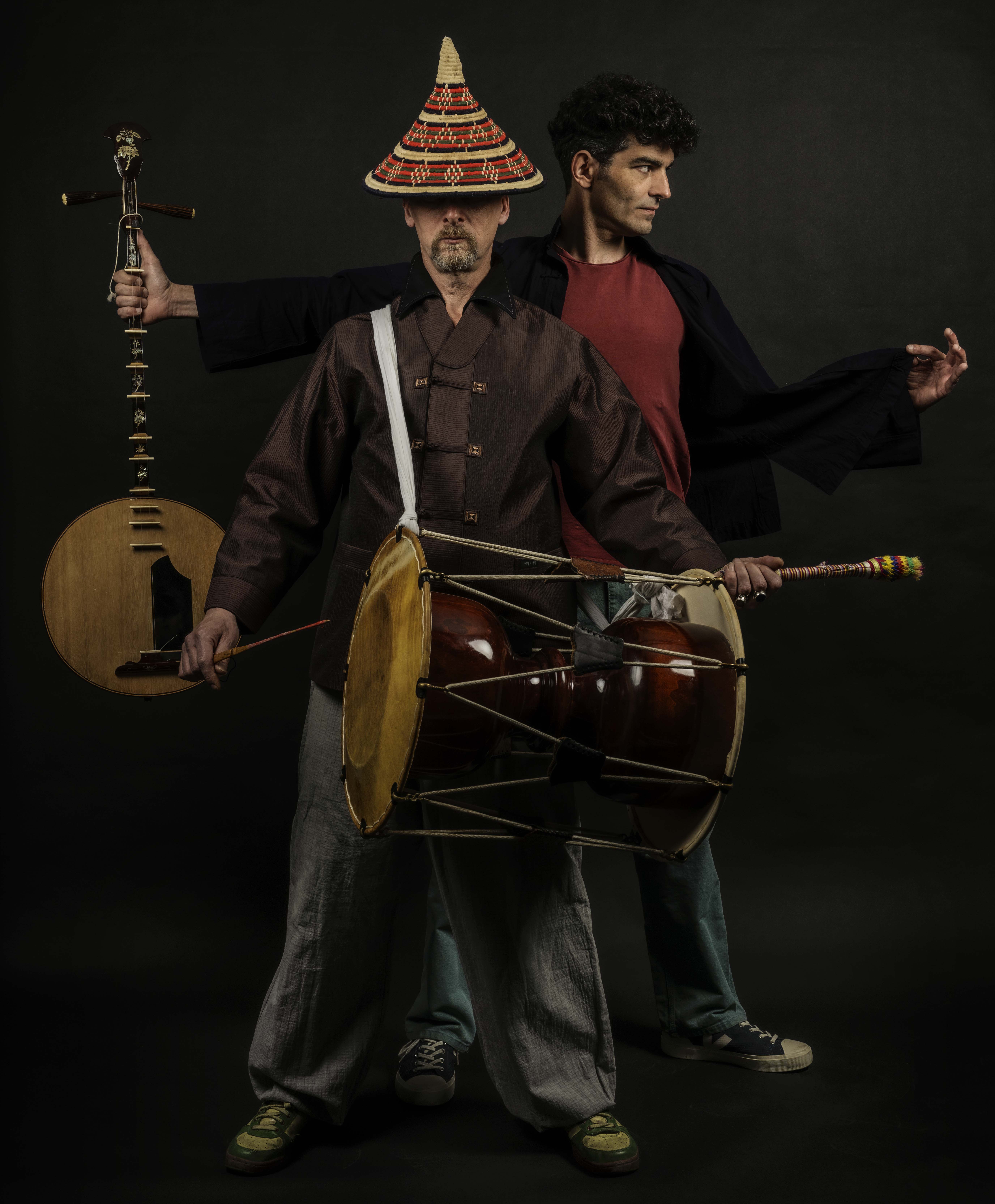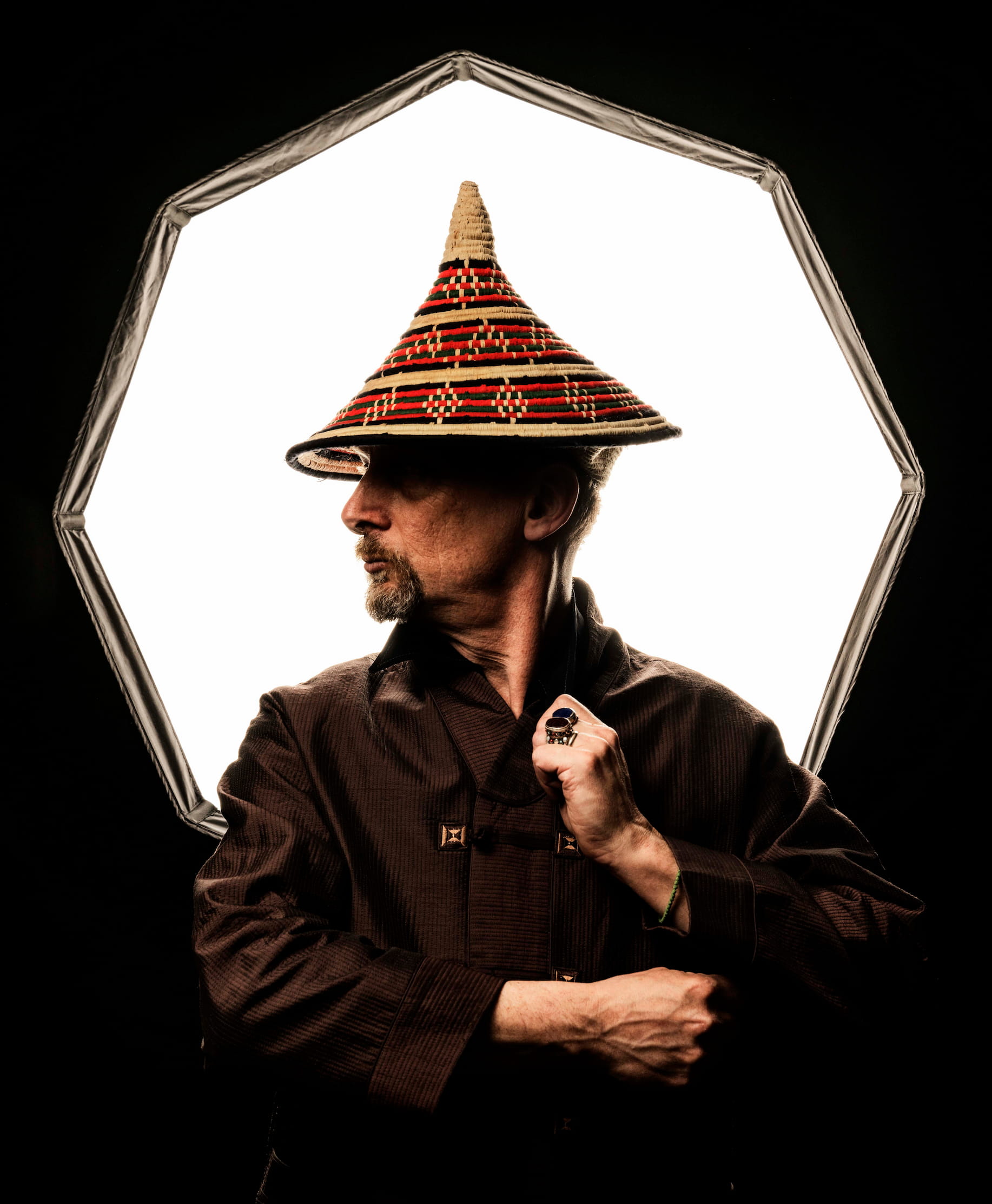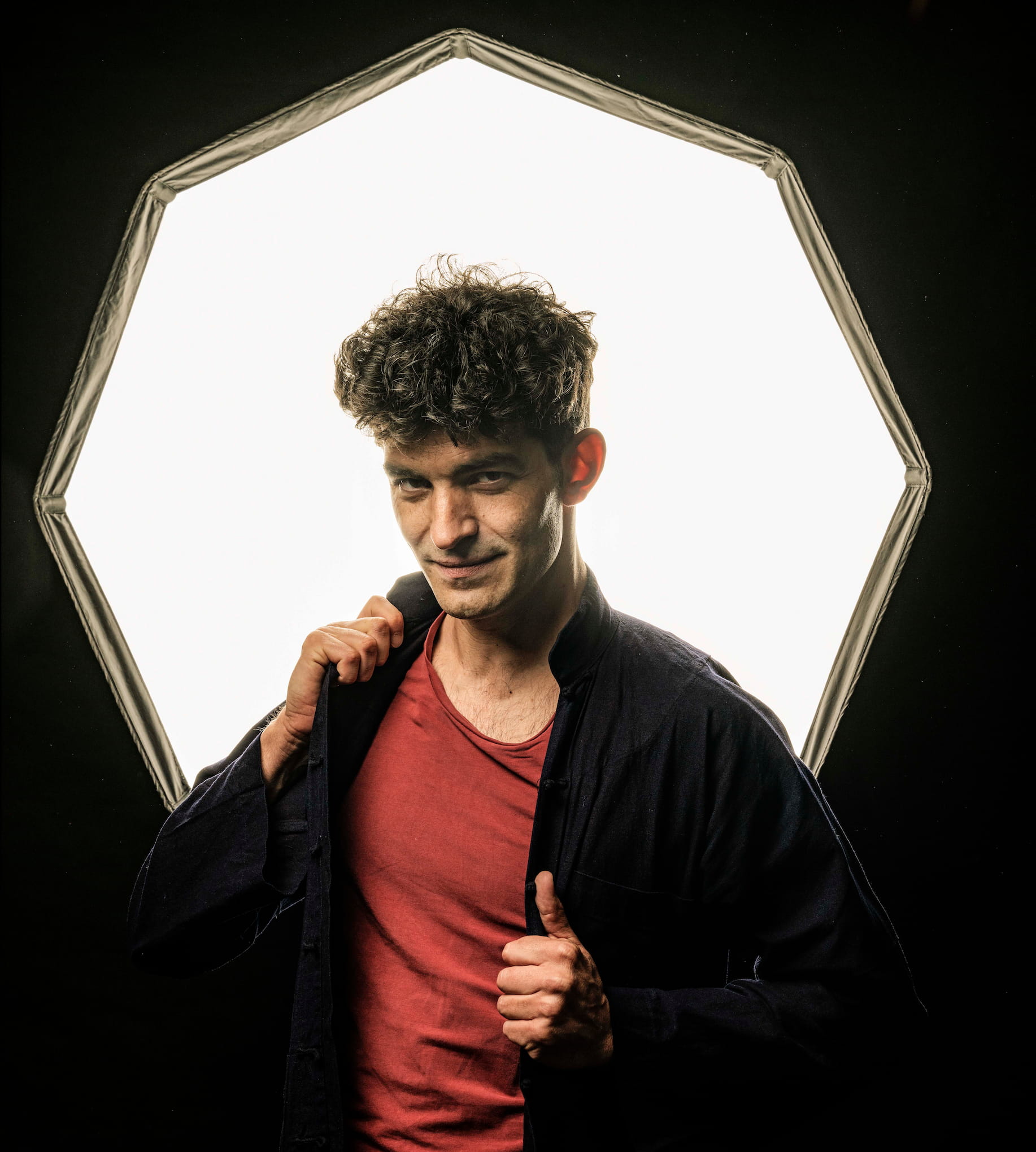
Seoul - Hanoi - Paris
Yogi Daïdaï [Here There] are
the bewitching power of Korean percussion,
the edge and delicacy of the Vietnamese đàn nguyệt,
Songs of trance – sometimes dreamy, often dancing.
Timeless voices, anchored in the now.
yeogi / ko : here
đây / vn : here
đấy / vn : there
Demo – June 2025 at Studio HBS
Yogi Daïdaï released their first EP
Telluriques affects
Three extensive tracks of earthliness.
Recorded and produced 2024 by Théo Laurent-Vitale at Studio la Petite Ource.

Upcoming events

Who is Yogi? Who is Daïdaï?
Yogi Daïdaï [Here There] is a duo weaving together original songs and ancestral texts from the lands of their instruments’ birth — Vietnam and Korea.
They sing in French, Korean, Vietnamese, Japanese, and Greek.
Their lyrics speak of love, pastoral daydreams, urban spirals, and mineral rebellions.
Yogi Daïdaï is timeless, universal, organic — and rooted in the now.
Their voices — deep or airy, seductive or spell-like — dance with the delicate edge of the đàn nguyệt, carried by the spellbinding force of traditional Korean percussion: janggu, buk, and kwaenggari.
Think psychedelic blues, trance-like chants infused with grooves that echo the East, Afro-Latin rhythms, rock and electronica…
Formed of wood and drum skins, nylon strings, metal gongs, and voices — this is Yogi Daïdaï.

Matthieu Rauchvarger
Vocals, Janggu, Puk, KkwaneggwariMatthieu Rauchvarger is an actor, musician, director, and a vagabond artist.
In 1990, he traveled to Bali to learn about the traditional topeng masks, and in 1991, he spent a year in Mexico working on an anthropological theater project focused on pre-Hispanic myths.
In 1997, he joined the Théâtre du Soleil, where he stayed for 10 years. It was there that he began his study of Korean percussion during the early rehearsals for the show “Flood Drummers”.
In 2000, he was invited to South Korea by master Kim Duk-soo to participate in an international Samulnori competition. This first trip led to many others, during which he immersed himself in various traditional Korean arts: Mynio singing, Pansori, Talchun dance, and more.
In 2008, he left the Théâtre du Soleil. Shortly after, he was tasked by the Korean Cultural Center in Paris to create a public show introducing Korean culture and Samulnori. In 2014, he traveled to Jeong-Ju (South Korea) to perform excerpts of Pansori at the Pansori Art Center. The following year, he gave concerts for the South Korean embassies in Algeria, Poland, and Senegal.
In 2020, he was invited by the members of the Akalé Wubé band as a singer for a project revisiting the repertoires of South African jazz musicians from the apartheid era. In 2021, he became both the musician and dancer for the show “Sleeping” by Serge Nicolaï, alongside Yoshi Oida.
He currently works with various theater companies, directs, and continues to share the rhythmic and scenic richness of the Land of the Morning Calm through his performances and workshops.

Sylvain Streiff
Vocals, Đàn NguyệtA graduate of École Polytechnique and a Berklee College of Music alumni, jazz guitarist and multi-instrumentalist, Sylvain Streiff loves blending genres.
After starting his career between modern jazz and experimental music in Paris and Istanbul, he spent two years in Hanoi, where he learned to play the đàn bầu, the iconic monochord of Vietnam. He also met NSƯT Phạm Văn Tỵ, with whom he studied the đàn nguyệt (two-stringed lute) and chầu văn singing, performing with him in Hanoi and the Nam Định region.
During this time, he composed a trio for prepared piano, đàn tranh, đàn bầu, sáo trúc (bamboo flute), guitar, and various traditional or invented instruments for the French Institute in Hanoi. Back in Paris, after a stint in entrepreneurship, and long fascinated by Japanese music, he devoted himself to the shakuhachi under the guidance of Sôzan Chiaki Kariya.
As a guitarist, he has played jazz in duo with bass clarinetist Stéphane Le Dro, in quartet with Katadjak (trumpet, percussion, clarinet, voice), experimental and noise rock with the collectives Art Is Dead and Percussive! in Istanbul, and experimental hip-hop with Elusor Macrurus. On the đàn bầu, he has performed classical songs with pianist Phan Huy Phúc, fusion jazz with guitarist Alex Formosa, progressive rock with The Nectarines (Théo Cancelli), and experimental noise with Multiversal.
With Yogi Daïdaï, it’s now the turn of the đàn nguyệt and chầu văn to be mixed with all these influences…